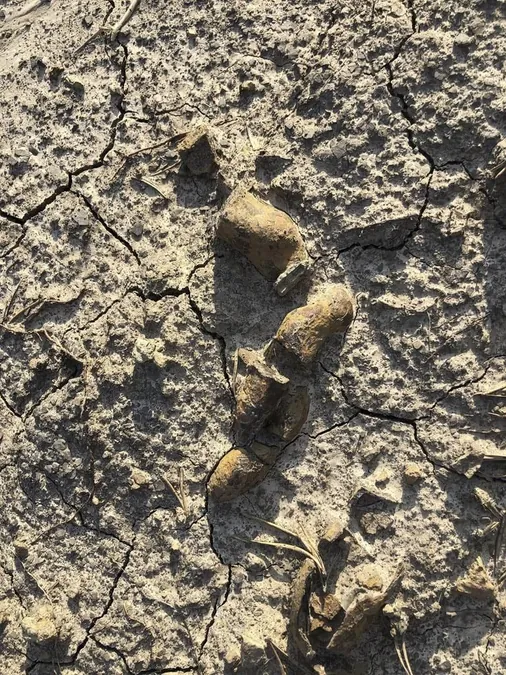
Uncovering Prehistoric Secrets: How Fossilized Dung and Vomit Reveal the Dinosaur Dynasty
2024-11-27
Author: Michael
Introduction
In a groundbreaking new study, scientists have turned to fossilized feces and vomit to unlock the mysteries behind the rise of dinosaurs, a process that occurred over millions of years. Researchers in Poland have revealed that the dinosaur takeover was not a swift event, but rather a gradual transformation marked by adaptability and varied diets.
Research Findings
The research, published in the prestigious journal *Nature*, delved into hundreds of dinosaur droppings from around 200 million years ago. According to Martin Qvarnström, a co-author of the study from Uppsala University, the first dinosaurs were opportunistic feeders, munching on a wide assortment of foods including insects, fish, and plants. This versatility may have aided their survival as environmental conditions shifted.
Dietary Evolution
Dinosaur dietary evolution was robust; herbivorous dinosaurs in particular expanded their range of greens to include a wider variety of plants that flourished during wetter climatic periods. This adaptability likely played a crucial role in their domination over other species.
Need for Further Research
Interestingly, while much of the study was based on Polish fossils, Qvarnström emphasizes the need for further research to validate these findings against global fossil records, as it could provide a more comprehensive view of the evolutionary patterns across different regions.
Importance of Studying Ancient Feces
Paleobiologist Emma Dunne from the University of Erlangen-Nuremberg highlights the importance of studying ancient feces, which, despite often appearing as mere blobs or rock-like formations, contain invaluable information about the diets and ecosystems of prehistoric creatures. The latest analysis yielded intriguing discoveries, such as fish scales, insect fragments, and even bone shards, nestled within the fossilized droppings, painting a vivid picture of the food web that existed millions of years ago.
Conclusion
As scientists continue to sift through this ancient waste, the lessons they learn may not only deepen our understanding of dinosaurs but also inform us about ecological adaptability and evolutionary success in the face of changing environments.
Final Thoughts
This fascinating intersection of paleontology and ecology continues to excite researchers and underscores the profound stories hidden within the smallest details of our planet's history. The investigation into these unassuming remnants of the past proves that even the most ordinary artifacts can yield extraordinary insights!









 Brasil (PT)
Brasil (PT)
 Canada (EN)
Canada (EN)
 Chile (ES)
Chile (ES)
 España (ES)
España (ES)
 France (FR)
France (FR)
 Hong Kong (EN)
Hong Kong (EN)
 Italia (IT)
Italia (IT)
 日本 (JA)
日本 (JA)
 Magyarország (HU)
Magyarország (HU)
 Norge (NO)
Norge (NO)
 Polska (PL)
Polska (PL)
 Schweiz (DE)
Schweiz (DE)
 Singapore (EN)
Singapore (EN)
 Sverige (SV)
Sverige (SV)
 Suomi (FI)
Suomi (FI)
 Türkiye (TR)
Türkiye (TR)